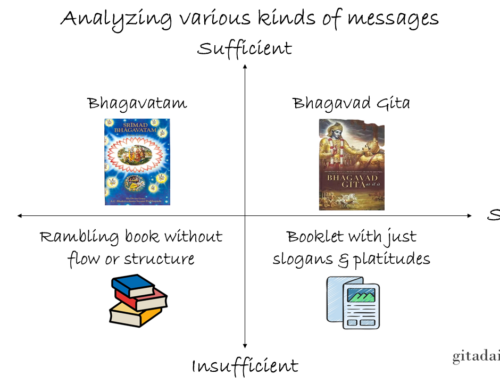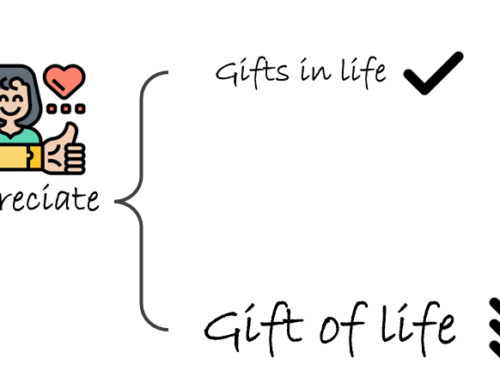Do emotions reside in the mind? – To understand, consider an analogous question: do sensations reside in the body?
Suppose a 20 kg dumbbell is placed in our palm, and we feel the sensation of a significant weight. What are the components of that sensation? Three: the source, the medium and the experiencer. The source is the dumbbell, the experiencer is we ourselves as conscious beings and the medium is our palm. Instead of a weight, suppose a fragrant flower is placed in our palm. We will experience the smell, but through our nose, not through our palm. This implies that the medium matters — it needs to have the capacity to experience that sensation.
Something similar applies to our experience of emotions, though things become more subtle and more subjective. Subtle because the stimulus that produces an emotion can range from gross (an external object) to subtle (internal memory) or a combination of both. The medium through which any emotion is experienced is the mind. And because each mind is filled with many distinct impressions from the past, emotions are often subjective. The sight of bungee jumping might fill one person with thrill and another with terror.
Then, do emotions reside in the mind? Not exactly; the impressions that give rise to emotions reside in the mind. When some people are more fearful than others, that means their mind contains more fear-inducing impressions.
How can comprehending the mind’s role in our emotional life help us? Through better self-awareness, we can prevent unhealthy impressions from defining our emotions. Gradually, as we nourish healthier impressions, they will give rise to more positive emotions, ensuring that we are aided, not impeded, by our emotions. In fact, that’s what the Gita did for Arjuna, changing his emotion from diffidence (02.06) to confidence (18.73).
One-sentence summary:
By understanding how the mind’s impressions shape our experience of emotions, we can prepare our mind for healthier emotions.
Think it over:
- What are the components of a sensation?
- How does the mind matter in our experience of emotions?
- How can we cultivate healthier emotions?
***
18.73: My illusion is now gone. I have regained my memory by Your mercy. I am now firm and free from doubt and am prepared to act according to Your instructions.





Emotions are invisible as GOD